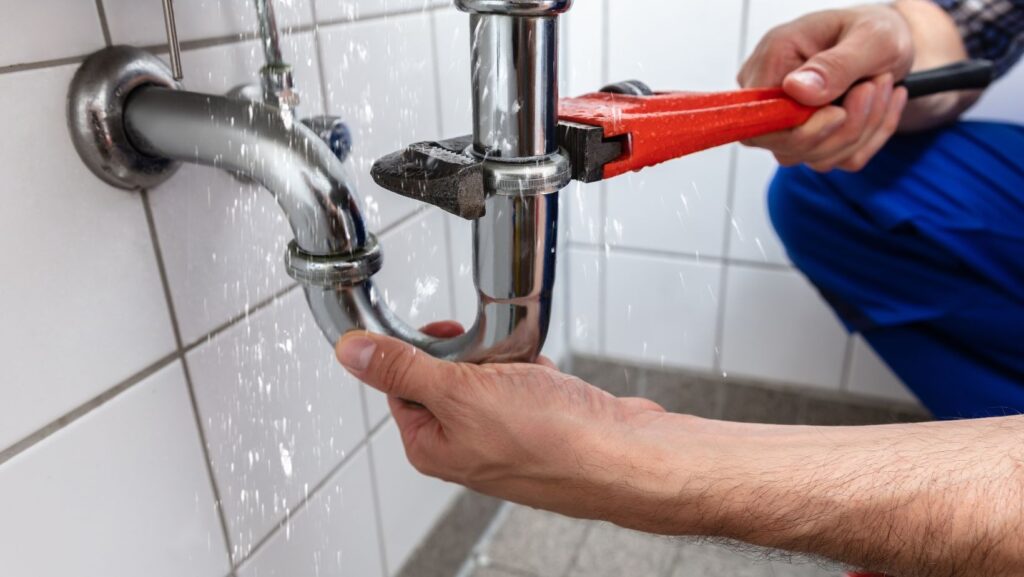You’ve probably seen it before. That slow drip in a restroom or a constantly running faucet that seems harmless at first. But for DFW property managers, even minor leaks can quietly drive up utility bills across multiple units. This cuts into your operating budget.
Spotting problems early helps you stay in control of costs and avoid disruptions. By finding water leaks early in Dallas buildings, you can keep your properties running efficiently and prevent bigger issues later on.
Keep reading to see how unnoticed leaks impact building expenses. Plus, you’ll see how professional detection methods protect your bottom line.
By the end, you’ll discover simple ways to maintain water efficiency without stress.
Why Even Small Leaks Can Add Up to Big Costs
Water is often an invisible expense, until it isn’t. A steady drip, slow-running toilet, or small pipe leak can waste hundreds of gallons of water a month. For property managers overseeing many units, that’s not just waste. It’s money literally going down the drain.
Here’s how those small leaks quietly grow into big problems:
● Higher utility bills: Even a slow leak in one unit can affect the shared meter. This raises costs across all tenants.
● Increased maintenance calls: Leaks often lead to moisture buildup. This causes minor repairs to become recurring issues.
● Potential property damage: Over time, water can weaken flooring, walls, or substructures. This adds to unexpected costs.
For DFW property managers, the message is simple: leaks aren’t just plumbing problems. They’re operational and financial ones. Acting early helps protect both your budget and your building.
Spotting Hidden Warning Signs Early
Not all leaks are visible, especially in older or high-traffic commercial buildings. Some signs show up slowly, while others appear through subtle changes.
Here are a few common clues that often go unnoticed:
● Unexplained spikes in your water bill.
● Faint dripping sounds when rooms are quiet.
● Musty or damp smells in restrooms, break areas, or maintenance rooms.
● Soft or discolored spots on walls or ceilings.
Catching these small signals early helps avoid major issues later. Property managers who regularly walk their buildings and watch for changes often catch issues early. This simple habit helps prevent small problems from turning into large, costly repairs.
How Professional Leak Detection Keeps Costs Under Control
Professional leak detection is more than just fixing problems. It’s about preventing water waste before it becomes expensive.
In DFW, many plumbing specialists rely on advanced tools to find leaks fast. They use acoustic sensors, pressure testing, and camera inspections to pinpoint problems.
Here’s why that matters for property managers:
● Less downtime: Early detection means fewer interruptions to daily operations.
● Lower repair costs: Fixing a leak before it spreads saves time, materials, and labor.
● Reduced tenant complaints: Preventing water issues helps maintain tenant trust and comfort.
For small buildings, inspections offer real peace of mind. They help you catch problems early and avoid unexpected costs. With a trusted plumber, you’ll always understand the real condition of your plumbing.
Preventive Maintenance: Your Best Cost Control Tool
Waiting for a leak to appear is often the most expensive route. Preventive maintenance is a way to manage plumbing care before costs spiral.

Consider these proactive habits:
- Schedule regular plumbing inspections at least twice a year.
- Monitor monthly water usage trends: even small changes can signal a hidden issue.
- Educate maintenance staff on early signs of leaks.
- Log and track past repairs to spot recurring patterns.
A predictable maintenance schedule helps property managers plan budgets more wisely. It also lowers the risk of sudden plumbing emergencies. In DFW’s fast-growing market, consistency builds both reliability and tenant satisfaction.
Happy Tenants, Healthy Buildings
Tenants may not always see the plumbing behind the walls. But they quickly notice when things go wrong:
● dripping faucets
● water pressure issues
● or damp spots
By addressing leaks early, property managers show that they care about comfort, cleanliness, and safety.
Reducing water waste also improves your building’s sustainability footprint. This is something many modern tenants value. It’s a quiet but meaningful way to build loyalty while keeping operating expenses manageable.
When tenants see that issues are resolved quickly, they’re more likely to renew leases. And that’s just good business.
Know When to Call a Local Expert
Some leaks can wait a few hours, but others need immediate attention. When you’ve ruled out visible causes, yet costs keep climbing, it’s time to call a professional. A plumber with advanced tools can pinpoint leaks without tearing into walls or disrupting tenants.
Partnering with a DFW-based expert means faster response times and less downtime for your property. Plus, you’ll gain insight into your building’s plumbing health. This can be a huge advantage when managing multiple units or locations.
Taking this proactive step shows your commitment to quality and financial control. It’s not just about fixing leaks. It’s about maintaining trust and stability across your properties.
Small Leaks, Big Lessons for Property Managers
In the busy world of property management, it’s easy to overlook what you can’t see. But those small leaks and running fixtures can quietly eat into your profits. Over time, they can harm your property’s condition and affect your tenants’ comfort.
By focusing on prevention, you can stay ahead of small plumbing issues. Schedule regular inspections and focus on early detection.
With the right professional support, you can stop small issues before they grow. This helps prevent minor plumbing problems from turning into major budget concerns.
In short, a few early fixes today can protect your entire building tomorrow. This will keep your DFW properties efficient, cost-controlled, and worry-free.



